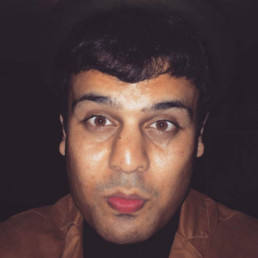
Written by Shuaib Khan
Shuaib is a teacher, sociologist, poet and podcaster.
On Saturday June 12th, I had the honour to join Hannah Wilson and Bennie Kara at the Diverse Educators forum for #DiverseEd. The theme I was focusing on was the notion of finding your voice.
After gathering my reflections and then almost losing my train of thought at the realisation one of my heroes, Dr Jill Berry was on the same panel as me, a really powerful conversation began to take place. The protected characteristics I wished to speak about were four-fold; being a British-Pakistani, Muslim educator. The journey that I have been on to reclaim a greater sense of self-pride in each element of my identity is still on-going. A lot of learning and unlearning comes with reflections. Ultimately, I am still on a journey.
After the introductions acknowledging the incredible educators that shared their experiences, the notion of what Nikesh Shukla refers to as the, “good immigrant” was my prominent theme. Before I began my journey, I believed firmly in the notion of being a “good immigrant” and the idea of assimilation and acceptance. Throughout my time at school and career as a teacher, as well as my lived experiences away from education, I was expected to “know my place.” There was always a tacit cultural tolerance that as a Muslim, and particularly as a Pakistani Muslim, raising my head too far above the parapet was frowned upon. Both society at large, and my own community seemed to foster this view. However, against the backdrop of the 2020 Black Lives Matter Movement, I began to realise that despite how much assimilation takes place and to whatever extent I suppressed by race, ethnicity or religion, the “good immigrant” was no longer the label for me.
Why suppress your own identity?
A lot of this is born out of fear. As noted, my identity is four-fold and if I add gender in there, possibly even five-fold. In public spaces I always felt the need to abbreviate my name. I was ‘SK’ to many and I never dared to correct someone for mispronouncing my name. The shame and even fragility of identity politics was ingrained into by society and its structures. When we do a Google search for British-Pakistanis, we are met with a barrage of crass stereotypes. The exact same can be said about Muslims and these derogatory views often made me feel ashamed of where I came from. The media played a huge role in all of this. Whenever a global event involving Muslims occurred, as a child I felt at fault and as an educator, in various establishments, I felt a real sense of shame. However, these are broken systems and this cognitive dissonance I was feeling needed to be challenged.
The turning point really began when I looked through photos of my late Grandfather. He was so fiercely proud of his Kashmiri roots but was unable to articulate his feelings in written to spoken word. Some 60 plus years since he arrived in this country, his vision of social mobility lives on through us. I found my voice to honour my grandfather. I found my voice to elevate the concerns of the community that I live and work in. Ultimately, with finding my voice has come the tremendous responsibility of occupying a platform to help others find their voice.
Hannah and Bennie enabled me to begin an important conversation. Many people out there are confused, disillusioned and apathetic about their identity. There is no magic wand approach. Yet, allowing others to speak on your behalf, without the lived experiences you have, this does your story no justice. For far too long I would wait my turn or relinquish my seat at the table because I felt like I had nothing worthy to say or offer. With organisations like DiverseED and Teacher Hug Radio amongst others, there is both a need and a desire for educators from all backgrounds to pull up a chair and begin to voice their concerns.
In summary #MyDiverseEdPledge was to carry on learning and unlearning and to carry on challenging broken systems. The systems the panellists spoke of; hetro-normativity, unconscious bias, racism and systemic silence, they all must be challenged. Thank you once again to Hannah and Bennie. Please join my journey and I also look forward to hearing all about yours.
You can watch Shuaib’s input at the #DiverseEd event here: https://youtu.be/wnanDncf6Xc

